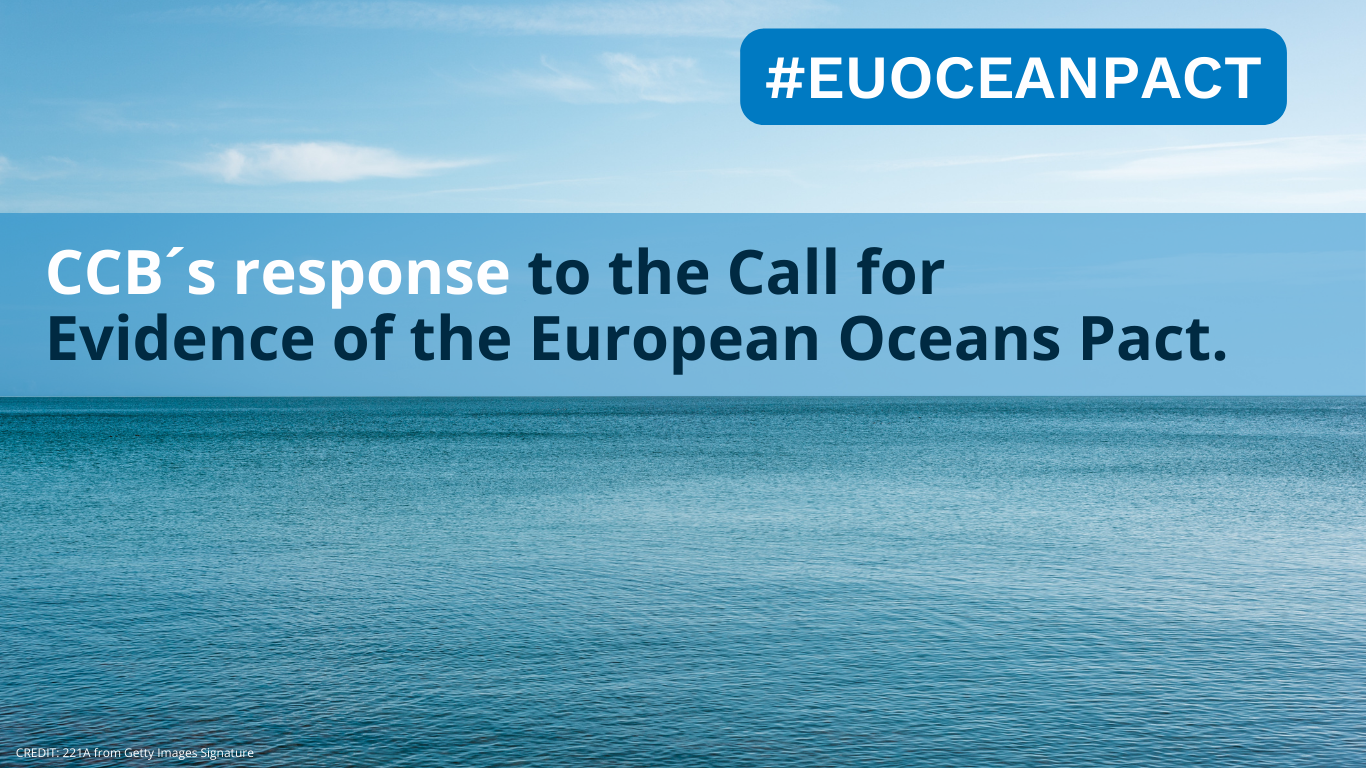News
CCB news about environmental issues, solutions, campaigns, projects & programmes in the field.
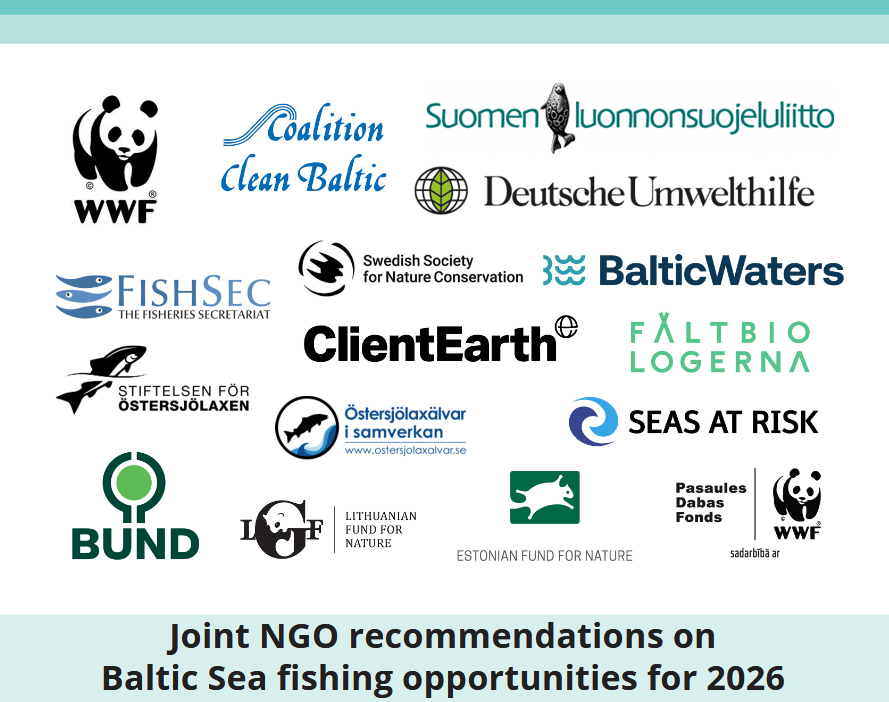
On Wednesday, 28 May, the International Council for the Exploration of the Seas (ICES) published its scientific advice for fish stocks in the Baltic Sea . In response, environmental NGOs from around the Baltic Sea region urge the European Commission to propose, and fisheries ministers to adopt, fishing opportunities at levels well below the headline advice to safeguard ecosystem needs and dynamics and allow for rapid recovery of Baltic Sea fish populations.
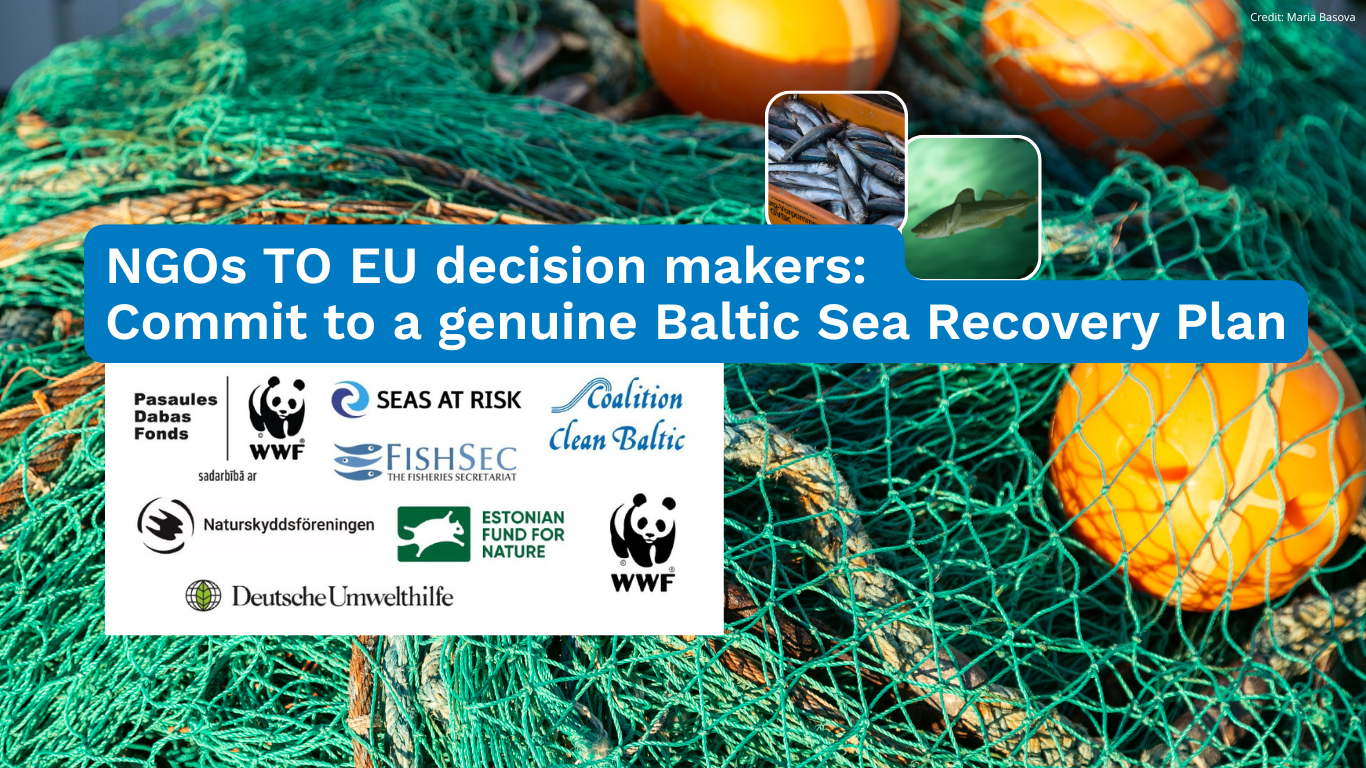
Key Baltic fish populations are in crisis, warn environmental NGOs. New scientific advice from the International Council for the Exploration of the Sea, ICES, confirms the poor condition of key Baltic fish populations, several of which remain collapsed (1). EU fisheries ministers must set 2026-catch limits well below ICES advice and prioritise long-term recovery over short-term economic gains.
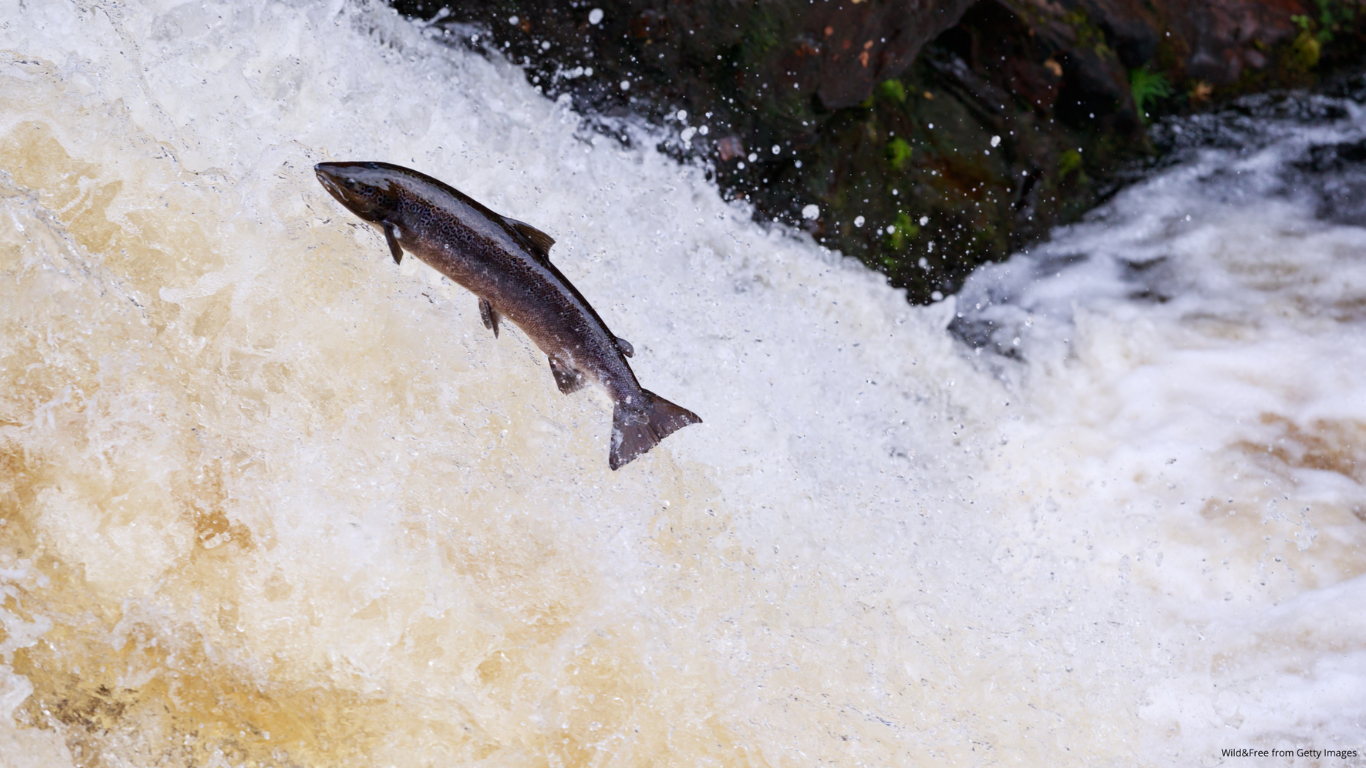
7 May 2025 - Yesterday the European Commission took a strong decision to deduct Finland´s 2025 Atlantic Salmon quota due to unjustified overfishing last year. This action is a clear application of the EU fisheries rules - aiming to ensure sustainable fishing practices and compliance with established quotas - and an important precedent for the consistent enforcement of fisheries law. In 2024, Finland was allocated a strict by-catch quota for Atlantic salmon, with direct fishing prohibited, except for some specific, minor exceptions. Despite this, Finland reported catching 3,162 salmon in a targeted fishery, under a claimed derogation stating the fishery was for scientific research purposes. Upon review, the European Commission concluded that these activities did not meet the legal standards for such an exemption and therefore found this claim unjustified. The number of vessels participating, 32, the number of salmon caught as well as the fact that Finland refused to re-release the salmon after conducting the “scientific research” are all reasons why the fishery cannot be considered to have been carried out for scientific research purposes. As a result, the same number of salmon caught beyond the legal limit in 2024 is now being deducted from Finland’s 2025 quota, from the same stock. “ We welcome the Commission's decision to take enforcement action and apply the law as intended. It sends a clear message to Member States that exceeding quotas will have consequences. However, more consistent enforcement is urgently needed across EU waters, especially in the Baltic Sea, where many fish stocks are collapsing and the ecosystem is in a poor state ” said Aimi Hamberg, CCB Marine Policy Officer. The Ministry of Agriculture and Forestry of Finland has already responded to the Commission´s quota reduction for Atlantic salmon by stating that this decision “is not legally justified” and they will consider taking legal action against it. As this matter continues to evolve, it is highlighting the importance of collective responsibility in managing fish stocks sustainably. Species like salmon, herring and cod , are under increasing pressure due to overfishing, climate change and habitat loss. In this context, rule enforcement is not just a bureaucratic step but a necessary action to ensure the long-term sustainability of marine life in the Baltic Sea.

Coalition Clean Baltic – CCB is a politically independent network, uniting 27 environmental non-profit organizations, as well as partners and experts from 11 countries surrounding the Baltic Sea. The main goal of CCB is to promote the protection and improvement of the environment and natural resources of the Baltic Sea region by encouraging new and constructive approaches and engaging people to become part of the solution instead of part of the problem. CCB Secretariat is based in Uppsala, Sweden.

European civil society organisations (CSOs) are currently facing an attack coming from certain Members of the European Parliament. Spearheaded by some MEPs from the European People’s Party (EPP) and by far-right groups, this attack resorts to misleading arguments to fabricate a scandal. This portrayal has been amplified through the media, with notable exceptions of articles that attempted to clarify this misleading narrative. European CSOs are crucial to ensure the voices of citizens from different parts of Europe are heard in the EU institutions. Attacks against civil society are unfortunately not new and are exacerbated by this harmful idea. Furthermore, for-profit corporate lobbying is through the roof when compared to non-profit advocacy. In 2024, the 50 corporations with the largest lobbying budgets collectively spent nearly €200 million on lobbying the EU alone (66% more than in 2015). Comparing this to the funding environmental NGOs receive under the LIFE programme - €15.6 million annually of a €700 million yearly budget - truly shows the weakness of this ‘scandal’. This is why over 570 civil society organisations from 40 countries, including all EU Member States, have joined forces to call on those in power to act now and ensure that civil society is adequately funded and enabled to share our crucial perspectives . In this statement, we address: The source of this false narrative; Inaccurate claims made about how CSOs obtain and use funding; Why it’s paramount that CSOs receive sufficient funding; The need for civil dialogue to enable CSOs participation. Democracy is about the right of citizens to be collectively heard for building an inclusive society and a shared European future; properly funded independent CSOs are a crucial tool for that. We call on decision-makers to ensure civil society organisations can thrive and play their role in interacting with policy-makers in order to have a more fully informed decision-making process. Read the full statement here . -END Civil Society Europe (CSE) is the coordination of civil society organisations at EU level. Through its membership, CSE unites EU-level membership-based organisations that reach out to millions of people active in or supported by not-for-profits and civil society organisations across the EU. CSE was created by several civil society organisations as a follow-up to the European Year of Citizens and was established as an international not-for-profit under Belgian law in 2016. Since then, it has become the point of reference for EU institutions on transversal issues concerning civil dialogue and civic space.
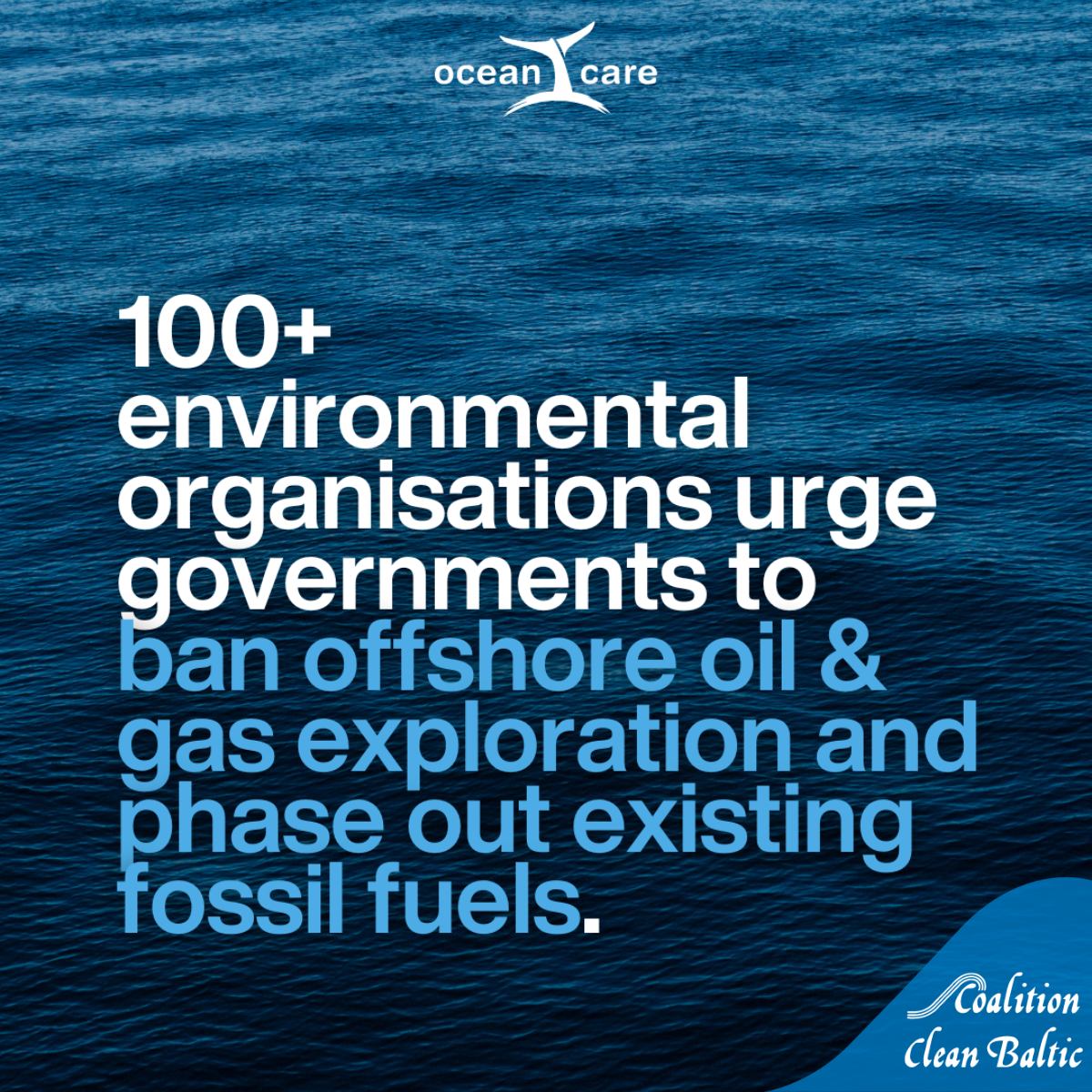
Global Call on Governments to Commit Banning Offshore Fossil Fuel Exploration at UN Ocean Conference
More than 100 civil society organisations from around the world are calling on governments to immediately ban any exploration for oil and gas in the Ocean and to phase out offshore drilling for fossil fuels consistent with the Paris Agreement. The letter comes at a crucial time, with growing recognition that a healthy ocean is crucial for the earth’s climate regulation. The UN Ocean Conference in June 2025 presents a key opportunity to agree on critical conservation measures towards resilient and healthy marine ecosystems fit for climate protection.
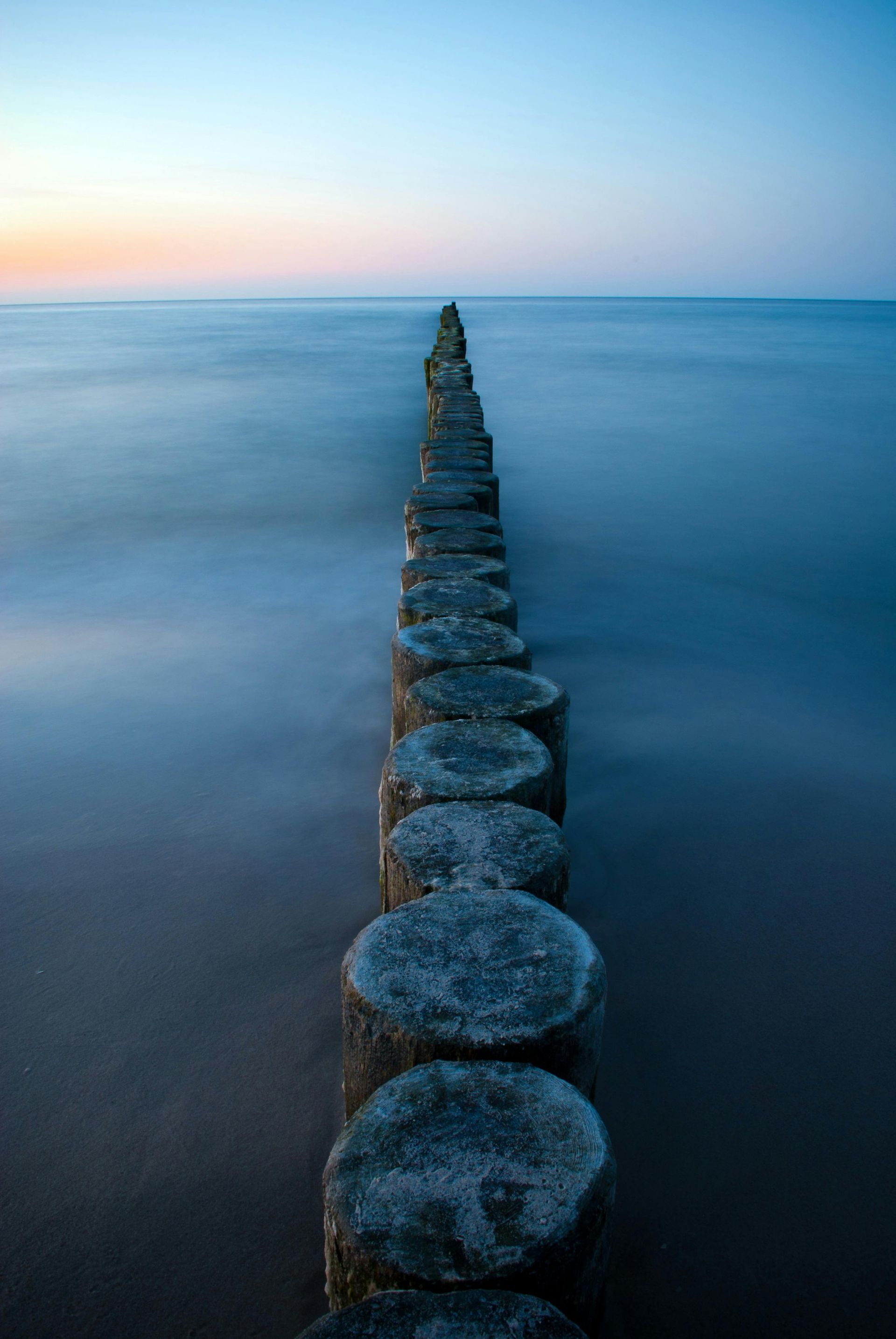
Uppsala, Sweden - 19 March 2025 - At Coalition Clean Baltic, we support open, civil, and constructive discussions. False news and hostility on X (former Twitter) have become more common in recent times and for this reason we have decided to close our account on this platform . “ Our aim has always been to engage in an open-minded exchange of relevant facts and views on environmental issues. We strive to connect with our community through inspiring actions and by advocating for the Baltic Sea, while sharing common values and principles of diversity, inclusiveness, and freedom of expression ”, says the CCB Council. Stay connected with us through the following channels: 🔹 LinkedIn , Instagram , Facebook , and YouTube : @coalitioncleanbaltic 🔹 Newsletter – Subscribe here: https://www.ccb.se/ccb-newsletter 🔹 Website - https://www.ccb.se/ Thank you for being part of this journey - Let’s keep working together for a sustainable future and a healthier Baltic Sea!

14 March 2025 – The newly released documentary video "Focus on the Coast" takes an in-depth look at the pressing environmental threats facing the Baltic Sea coastline. Produced by Ecodefense and Coalition Clean Baltic, with financial support from the EU LIFE Programme (*), the 1-hour film explores the devastating effects of intensified storms and rising sea levels , alongside inspiring and best conservation practices in Lithuania, Latvia and Poland . Global climate change has led to catastrophic storms and floods in the Baltic Sea region, destroying unique ecosystems and causing significant harm to communities and infrastructure. However, the Baltic region has a long history of coastal conservation, with valuable lessons learned and innovative solutions implemented. "Focus on the Coast" dives deep into this critical issue, highlighting both the threats and the measures being taken to safeguard these vulnerable coastal areas. “ With this documentary, we aim to showcase not only the challenges facing the Baltic coasts but also the efforts of those working tirelessly to protect them ,” said Alexandra Koroleva, Ecodefense Co-Chairwoman, author and producer of the documentary video. “ By featuring real stories and interviews with local activists and scientists, we hope to inspire action and demonstrate that effective coastal protection is possible ”. Through experts’ insights and on-the-ground footage, viewers gain insight into why these areas need protection, the specific strategies being implemented, and how they are making a difference. The documentary also underscores the gap between international recommendations —such as those from HELCOM (2014)— and the reality of policy implementation , emphasizing the need for stronger action from governments and policymakers. Non-governmental organizations (NGOs) play a crucial role in advocating for policy change, collaborating with scientists, independently exploring the coast and taking part in practical work on coastal conservation, participating in public hearings on environmental impact assessments (EIA), organizing educational programs, working with media, attracting and engaging local residents, and encouraging municipalities to act. "Focus on the Coast" serves as a vital educational tool to support these initiatives, providing high-quality visual materials that communicate the scale of the problem and the importance of sustainable coastal management. The documentary video it´s released on CCB´s YouTube channel and will be distributed through Coalition Clean Baltic´s network and partners to raise awareness and reach policymakers, scientists, and the general public. For more information, please contact: Alexandra Koroleva, Ecodefense Co-Chairwoman, author and producer of the documentary video, ecosasha@gmail.com (*) Views and opinions expressed are however those of the author(s) only and do not necessarily reflect those of the European Union or CINEA. Neither the European Union nor CINEA can be held responsible for them.
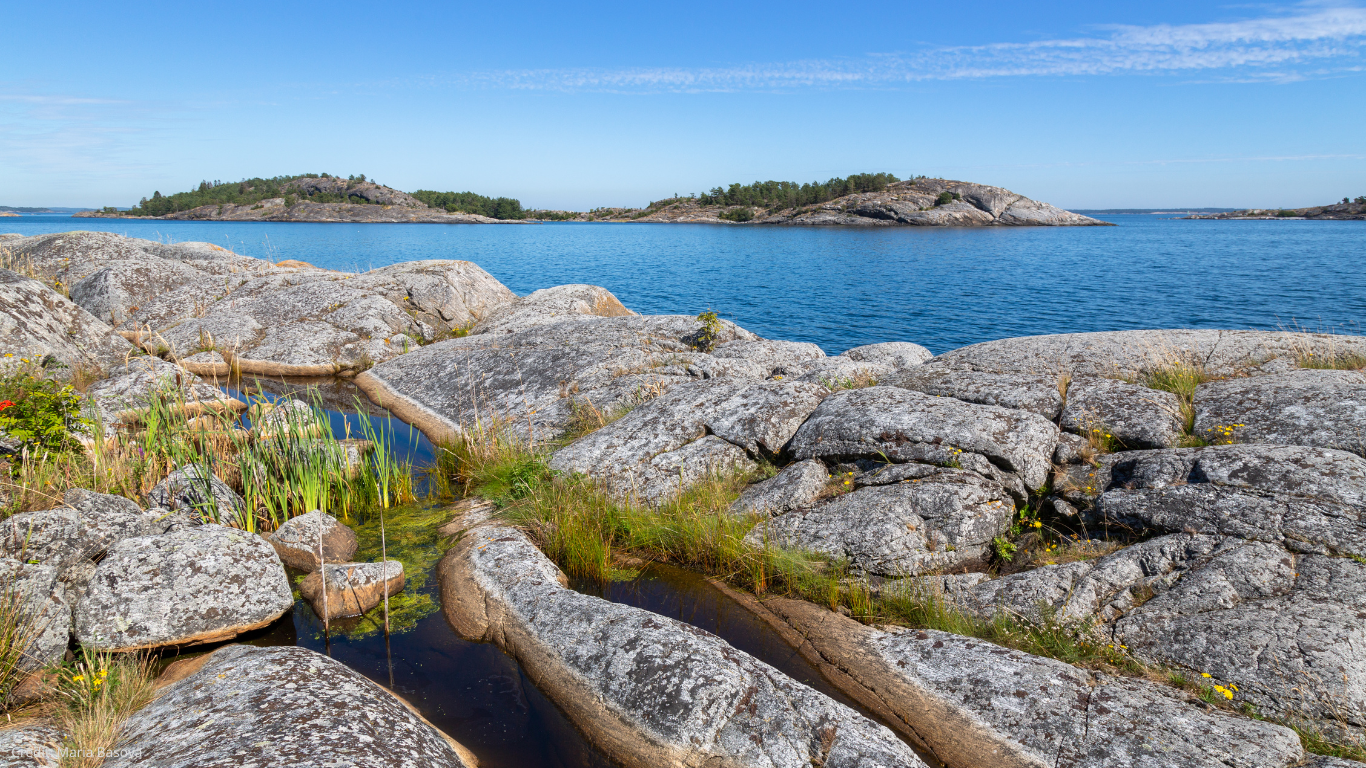
The Baltic Sea, one of the world’s largest bodies of brackish water, is home to a wealth of varied biodiversity. But this unique and delicate ecosystem is facing increasing pressures from human activities and global threats, such as climate change. A key strategy for safeguarding the sea is the establishment of Marine Protected Areas (MPAs) —designated zones where human activities should be regulated for the benefit of biodiversity, allowing ecosystems to recover and thrive. Despite globally recognized efforts by the countries bordering the Baltic Sea to designate MPAs, significant gaps remain in their governance, management, and monitoring—both individually and as part of a transboundary network. To address these gaps, the PROTECT BALTIC project —under the umbrella of the regional sea convention HELCOM—is working to better understand the current state of the Baltic Sea MPA network and its management across the region, as well as how countries can collaborate to enhance it. A key step in this process is updating and improving the region’s MPA Portal, a regional platform designed to store comprehensive MPA information and strengthen the capacity of marine protection actors. In this process, the project is uncovering some notable challenges, but also some significant opportunities. Estefania Cortez, PROTECT BALTIC Project Manager / Legal expert from CCB, is leading the task of collecting and compiling information from the Baltic countries’ MPA management plans and other similar official instruments. She provides insights into the complexities of MPA management in the region and the crucial role that the project is playing in modernizing information and bridging existing gaps.
